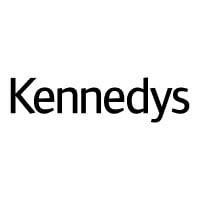

General counsel | Super Group (SGHC) Limited



Martine Nathan
General counsel | Super Group (SGHC) Limited
What are the key projects that you have been involved in over the past 12 months?
I was involved in the purchase of significant sportsbook software and all related structuring of hosting, support, third party platforms and workforce arrangements; all M&A activity of the Group, as well as NYSE governance, SEC filings and Board advisory; the EU AI Governance Framework programme; and sponsorship agreements with, amongst others, Arsenal FC and Manchester City FC. I also implemented a group-wide employee share incentive plan.
How do you approach managing legal aspects during periods of instability or crises, and how does your legal strategy align with the broader business strategy to ensure the organisation’s resilience?
During any instability or crises, it is vital for Legal to work effectively with stakeholders across the business. During times of uncertainty, I prioritise clear, timely communication and foster strong relationships with executive leadership, operational teams, and external partners. Being visible, accessible, and solution-oriented helps ensure that legal considerations are integrated into every critical decision. Whether navigating a regulatory shift or geo-political headwinds, this approach ensures that legal actions support operational stability, protect stakeholder trust, and preserve long-term value.
Legal works hand in hand with risk, compliance, data protection and internal audit to continue to identify areas of risk to the business and establish clear strategies to mitigate them. This proactive strategy embeds legal into the core of our crisis planning and decision-making processes. This includes ensuring our contracts are structured for flexibility, our compliance frameworks are agile and responsive to evolving regulations, and our governance practices are robust enough to withstand external shocks.
What do you think are the most important attributes for a modern in-house counsel to possess?
Generally, a modern in-house counsel must be a strategic partner to the business, combining deep legal expertise with strong commercial acumen. Vitally, the business depends on our ability to translate complex legal concepts into actionable advice. Strong leadership and ethical judgment are also vital to manage risk, influence decision-making, and support sustainable growth across multiple jurisdictions. More specifically for complex international groups, a global perspective is required, as well as an agile approach to fast-changing regulatory and business environments. Going forward, tech-savviness, particularly in areas like data privacy and legal operations, is increasingly important.
Based on your experiences in the past year, are there any trends in the legal or business world that you are keeping an eye on, of which you think other in-house lawyers should be mindful?
In-house legal teams should be closely watching the rapid integration of AI and legal tech, which is transforming everything from contract review to risk analysis and driving expectations for faster, more strategic legal support. Alongside this, the legal function is evolving into a proactive business partner, with in-house lawyers increasingly embedded in cross-functional teams and expected to contribute to commercial strategy. Regulatory complexity is intensifying – particularly around AI governance and data privacy – requiring more agile compliance strategies. Rising internal expectations for speed, transparency, and tech fluency are also pushing in-house legal departments to modernise their infrastructure and embrace data-driven operations. These trends are converging in 2025 and beyond.